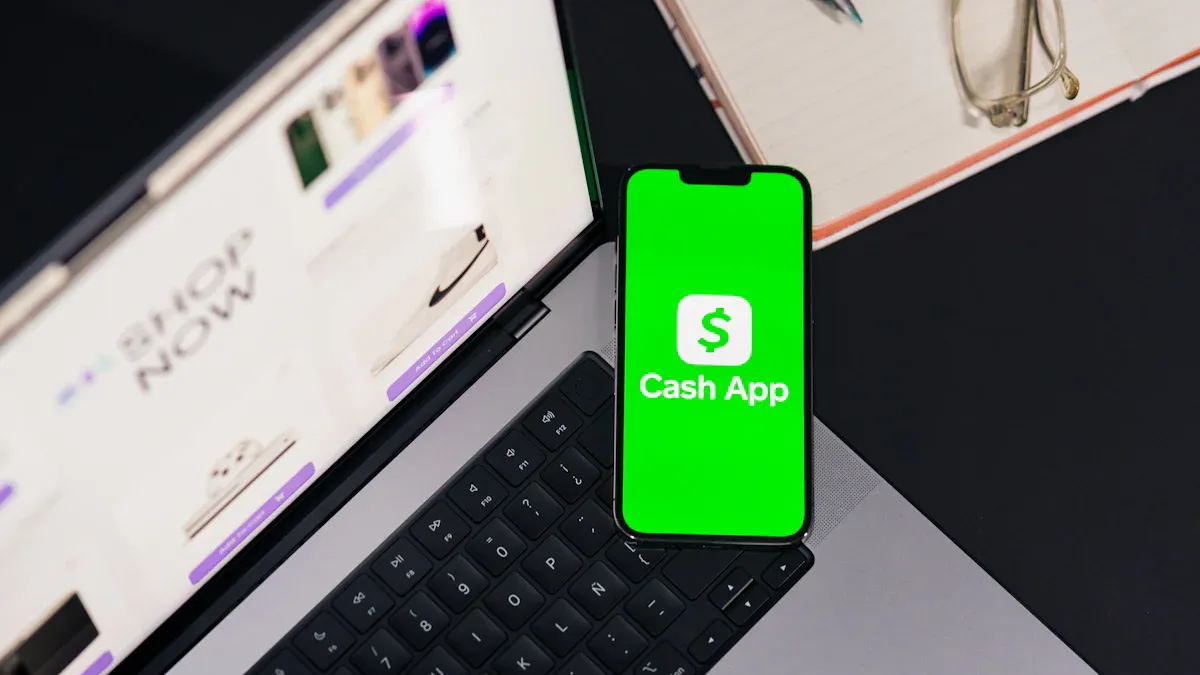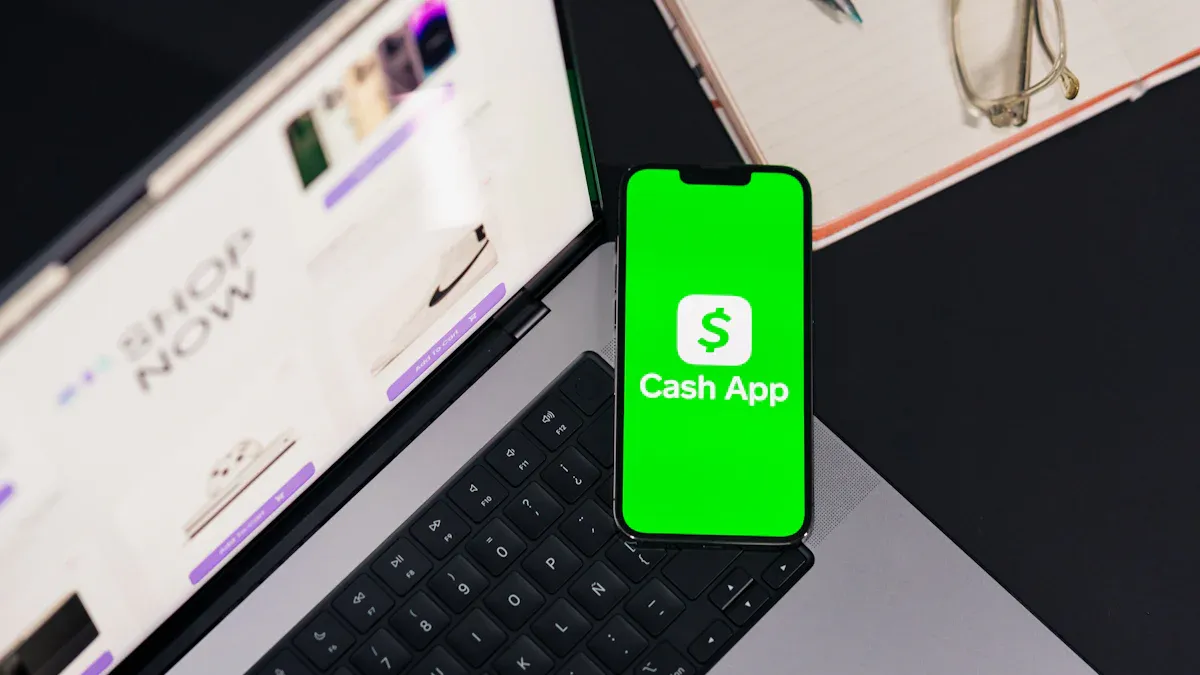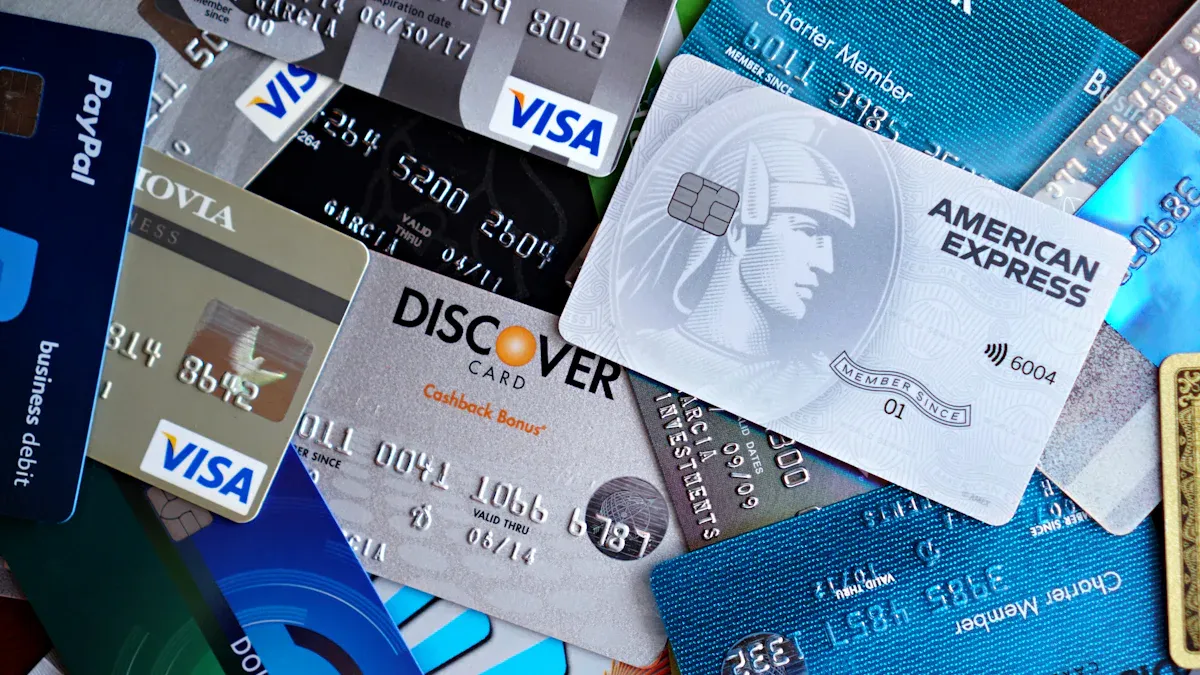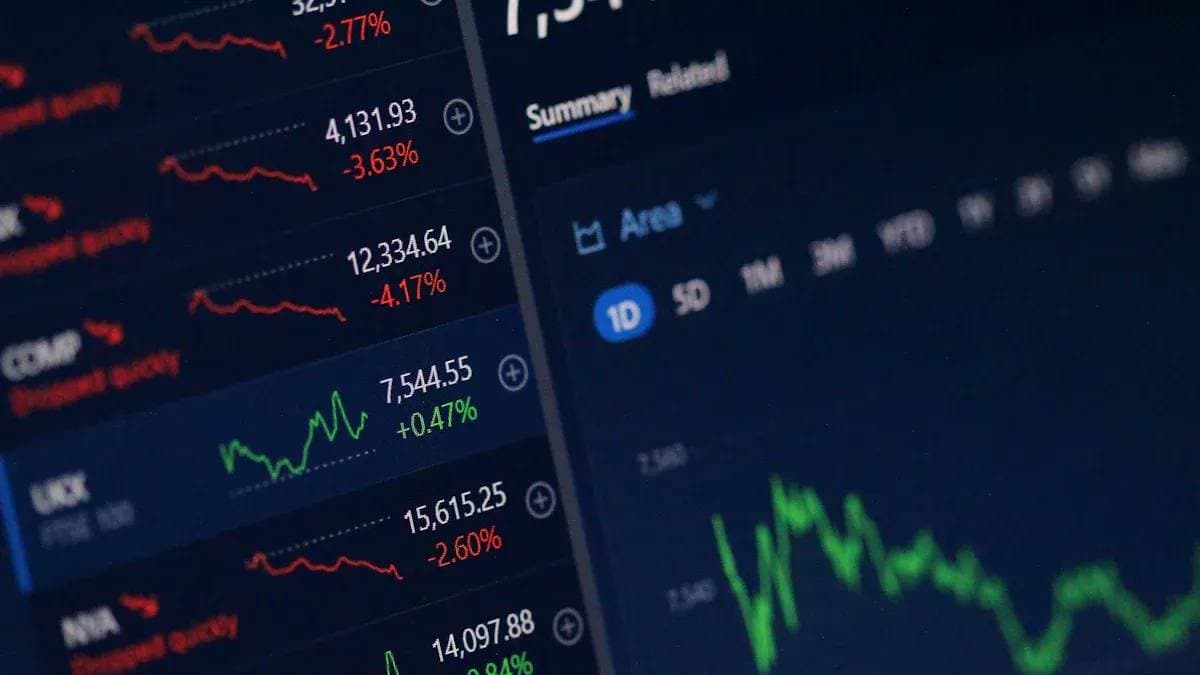Can a credit card be added to Cash App?

Image Source: pexels
The answer is yes: You can link a credit card to your Cash App account for payments. This provides you with additional payment flexibility.
Please note two core points:
- When using a credit card for payments, Cash App charges a 3% fee.
- You cannot use it to add funds to your Cash App balance.
Key Points
- You can add a credit card to Cash App, but you must first link a debit card.
- Using a credit card for payments incurs a 3% fee and may be treated by your bank as a cash advance.
- Credit cards cannot be used to add funds to your Cash App balance; they are only for direct payments.
- Cash App supports major Visa, Mastercard, and other credit cards but does not support international cards or one-time gift cards.
- Completing identity verification can increase your transaction limits, allowing you to send and receive more money.
How to Add a Credit Card to Cash App?

Image Source: pexels
The process of adding a credit card to Cash App is very simple. However, before starting, you need to complete one key preparation step. Below, we will break down each step in detail to ensure you can complete the operation smoothly.
Prerequisite: Link a Debit Card First
This is a key step you cannot skip. Before adding any credit card, Cash App requires that your account has successfully linked a valid debit card or bank account.
This is because Cash App primarily uses debit cards or bank accounts to verify your identity and as the main funding source. Only after completing this step will the option to add a credit card become available. If you encounter issues during addition, first check whether you have successfully linked a debit card.
Step One: Enter Payment Settings
Now, let’s start the actual operation. Please follow this path to enter the correct settings menu:
- Open your Cash App application and go to the home screen.
- Tap the profile icon in the top-right or top-left corner of the screen (usually a person silhouette or your photo).
- Scroll down in the menu and select “Linked Banks” (Linked Banks) option.
Step Two: Select Add Card
After entering the “Linked Banks” page, you will see the linked debit card or bank account. On this page, you will see an option to add a new card.
Please click “Link Card” or “Add Card” (Add Card) button. Cash App uses the same entrance to add both debit and credit cards.
Step Three: Enter Card Information and Verify
The final step is to enter your card information. The system will prompt you to provide the following standard information:
- 16-digit credit card number
- Expiration date (month/year)
- CVV security code (3 or 4 digits on the back of the card)
- Billing Zip Code
After accurately entering all information, click confirm. Cash App will attempt to verify the card.
Common Issue: Why Did My Card Addition Fail? Sometimes, even if you enter completely correct information, you may encounter error prompts. This is usually not due to your operational error but may be an issue with the bank or system. You might see messages like:
- The system keeps prompting “Please update your payment method”.
- “There is an issue with your payment method. Please update your payment information to correct the issue and try again.”
- A red message pops up indicating the card cannot be added due to an unknown issue.
If this happens, it is recommended to try again later or contact Cash App customer service for help.
Once verification is successful, your credit card will appear in the “Linked Banks” list and can be used for payments at any time.
Fees and Rules for Using Credit Cards
Although paying with a credit card is convenient, you must understand the fees and special rules attached to it. This not only relates to the fees charged by Cash App but may also affect your credit card bill.
3% Transaction Fee
There is no free lunch. When you choose to use a credit card for payments on Cash App, you need to pay a fixed fee.
Fee Standard: Cash App charges a 3% fee on all payments made via credit card.
This fee is a standard practice in the payment processing industry to cover the costs of credit card network transaction processing. For example, if you send $100 to a friend using a credit card, Cash App will charge you a $3 fee, and your credit card will be debited a total of $103.
To give you a clearer understanding of the costs of different payment methods, please refer to the table below:
| Funding Source | Fee |
|---|---|
| Cash App Balance | 0% |
| Linked Bank Account | 0% |
| Debit Card | 0% |
| Credit Card | 3% |
Compared to other major payment platforms, Cash App’s fee standard is at the industry average.
| Payment Platform | Credit Card Payment Fee |
|---|---|
| Cash App | 3% |
| Venmo | 3% |
| PayPal | 2.9% + $0.30 |
| Zelle | Does not support credit card payments |
Fee Transparency
You don’t have to worry about being charged unexpectedly. Cash App is very transparent about fees.
Before you confirm each payment, the app interface will clearly display all fee details. You will see:
- The amount you want to send.
- The 3% fee amount.
- The total amount you will pay.
Important Tip: The transaction will only be executed after you see and agree to the total amount including the fee and click confirm payment. You always have the final decision.
Cash Advance Risk
This is the most important potential “pitfall” you must pay attention to when using a credit card for payments on Cash App.
Many credit card issuers classify personal transfers (P2P payments) made through Cash App as “Cash Advance” rather than regular “Purchase.”
Think of this behavior as directly withdrawing cash from an ATM with your credit card. This type of transaction usually triggers the bank to charge higher fees and interest.
Cash advances may have the following consequences:
- Higher Interest: The annual percentage rate (APR) for cash advances is usually much higher than for purchases, some approaching 30%.
- No Grace Period: Unlike purchases, interest on cash advances starts accruing from the transaction day, without any delay.
- Bank Fee: In addition to Cash App’s 3% fee, your issuer may charge an additional cash advance fee (usually 3%-5% of the transaction amount, or a minimum of $10).
Let’s look at an example: If you advance $1,000 via credit card, the cost for one month might be as follows:
| Fee Type | Estimated Amount |
|---|---|
| Bank’s Cash Advance Fee (at 3%) | $30 |
| One Month’s Interest (at 25% APR) | ~$21 |
| Total Bank Fees (excluding principal) | ~$51 |
Action Suggestion: Before using a credit card for large transfers, it is strongly recommended to call your card issuer’s customer service and clearly ask “whether personal transfers through Cash App will be treated as cash advances.” Understanding the rules can help you avoid unexpected high bills.
Credit Card Funding Restrictions
You have successfully linked the card, but you will soon discover an important restriction: You cannot use it to add funds to your Cash App balance. This is a deliberately set rule; understanding it can help you use the app better.
Why You Cannot Fund the Balance
Cash App clearly distinguishes between “payment tools” and “funding sources.” It treats credit cards as a direct payment tool rather than a source for adding funds to your account balance.
Core Rule: Cash App does not allow users to use credit cards to add funds to their Cash App balance. This rule is designed to encourage users to manage funds using low-cost methods like bank accounts or debit cards and to help users avoid accumulating high-interest debt through funding.
This design ensures that your Cash App balance mainly comes from your own funds, not credit.
Correct Funding Methods
So, if you want to add funds to your Cash App balance, how should you do it? You have multiple free or low-cost options. Cash App-approved funding methods include:
- Linked Bank Account: The most direct way; you can transfer securely from your bank account.
- Debit Card: You can also use a linked debit card to fund your account.
- Direct Deposit: You can have your paycheck or government benefits deposited directly into your Cash App account.
- Cash Deposit: You can deposit cash at designated partner retailers.
- Request Funds: You can request payments from other Cash App users; the money they send will go directly into your balance.
Usage Scenario: Direct Payments
Although it cannot fund the balance, the linked credit card still has its uses. Its main function is as a backup payment option for direct transactions.
When you send money to friends or pay merchants via Cash App Pay, you can select this card as the funding source. The process is as follows:
- You enter the payment amount.
- On the confirmation page, select your funding source.
- Choose your linked credit card from the list.
- Confirm the payment (the 3% fee will be displayed at this time).
This way, the funds are deducted directly from your card and sent to the recipient, completely bypassing your Cash App balance. This provides great payment flexibility when your balance is insufficient.
Supported Card Types

Image Source: pexels
Before adding a card, it is very important to understand which types of cards Cash App supports. Although it accepts most major cards, there are also specific rules and exceptions to note.
Major Credit Card Networks
The good news is that Cash App supports all major credit card networks issued in the United States. As long as your card bears one of the following logos, you can try adding it to your account:
- Visa
- Mastercard
- American Express
- Discover
This covers the vast majority of card types held by users, providing you with extensive payment options.
Bank-Issued Credit Cards
Cash App is primarily designed to accept personal credit cards issued by US banks. However, note that the following types of cards usually cannot be successfully linked:
- International Bank Cards: Cash App does not accept cards issued outside the United States.
- Some Prepaid or Virtual Cards: The system may reject certain one-time or non-physical cards.
- Cards Issued by “Buy Now, Pay Later” Providers: Cards provided by services like Zip Card or Humm are generally not supported.
If your card addition fails, first confirm that it does not fall into any of the above categories.
Prepaid Gift Cards
This is a common question: Can I use a Visa gift card to fund Cash App?
Important Update: Cash App does not directly support adding one-time gift cards (such as Visa Gift Cards). You cannot link such cards directly to your account as a payment method.
However, there are exceptions to the rule. Cash App supports certain reloadable prepaid cards because their functions are closer to traditional debit cards. For example, prepaid cards issued by NetSpend, Bluebird, or Serve can usually be successfully linked.
Therefore, the key is to distinguish between “one-time gift cards” and “reloadable prepaid cards.” The former usually cannot be used, while the latter has a high chance of being accepted.
Transaction Limits and Restrictions
Understanding Cash App’s transaction limits is crucial for managing your funds. Your account limits depend on whether you have completed identity verification, and these limits apply to all payment methods (including credit cards).
Default Limits
When you create a new Cash App account, the system sets an initial transaction limit for you. This limit applies to all users who have not verified their identity.
Important Tip: When calculating transaction limits, Cash App does not distinguish between credit card and debit card usage. All transactions count toward your account’s unified limit.
For an unverified account, your basic limits are as follows:
- Sending Limit: Up to $250 within 7 days.
- Receiving Limit: Up to $1,000 within 30 days.
How to Increase Limits
If you find the default limits insufficient, you can significantly increase them by completing identity verification. The verification process is simple; you need to provide some personal information to Cash App.
You need to prepare the following information to complete verification:
- Your full legal name
- Your date of birth
- The last four digits of your Social Security Number (SSN)
In some cases, Cash App may also require additional identity proof documents. After successful verification, your transaction limits will be significantly increased.
| Account Status | Weekly Sending Limit | Receiving Limit |
|---|---|---|
| Verified | Up to $7,500 | Unlimited |
View Personal Limits
Your specific limits may vary due to account history and other factors. Want to know your current exact limits? You can check them anytime within the app.
The operation is very simple:
- On the Cash App home screen, tap your profile icon.
- Scroll down and tap “Limits” (Limits) option.
This page will clearly display your current sending and receiving limits, helping you better plan your transactions.
In summary, adding payment cards to Cash App is entirely feasible, but you need to pay attention to several key rules.
Remember the three most important points:
- You must first link a debit card.
- Payments incur a 3% fee and may be treated as a cash advance.
- It cannot fund your Cash App balance.
Despite these rules, Cash App remains very popular.
- Cash App’s overall user satisfaction in 2025 is as high as 93%.
- 91% of users aged 18-34 report high satisfaction, considering it easy to use.
Please weigh the pros and cons based on your needs; to avoid fees, prioritizing debit cards or account balances is a wiser choice.
FAQ
Can I Avoid the 3% Fee?
When you choose to pay with a credit card, you cannot avoid this 3% fee.
Money-Saving Tip: If you want to pay for free, use your Cash App balance, linked bank account, or debit card. These methods have no fees.
If you often pay online or maintain subscriptions and worry about credit-card charges being treated as cash advances, consider using a dedicated virtual payment card with tighter limits. You can apply for BiyaPay’s Virtual Card, toggle it on/off, and set spending caps for safer online use. For cross-border needs, estimate costs with the free Rate Converter & Comparison and complete transfers via Remittance to avoid avoidable fees.
As a multi-asset wallet operating under registrations in multiple jurisdictions, BiyaPay supports compliant daily payments and cross-border fund management.
Why Did My Credit Card Addition Fail?
Addition failures usually have several reasons. Please check the following:
- Whether you have first linked a debit card.
- Whether the card information (card number, expiration date, CVV) is completely correct.
- Whether your card is a type supported by Cash App (Visa, Mastercard, etc.).
Is Paying with a Credit Card Safe?
Yes, Cash App uses encryption technology to protect your payment information. Your full card number will not be shared with the recipient. However, you should still be vigilant against scam messages and only pay people you know and trust.
Will Credit Card Payments Affect My Credit Score?
This depends on your card issuer. If the bank treats this transaction as a “cash advance,” it may impact your credit report. It is recommended to consult your card issuer directly for the most accurate information.
*This article is provided for general information purposes and does not constitute legal, tax or other professional advice from BiyaPay or its subsidiaries and its affiliates, and it is not intended as a substitute for obtaining advice from a financial advisor or any other professional.
We make no representations, warranties or warranties, express or implied, as to the accuracy, completeness or timeliness of the contents of this publication.
Related Blogs of

After Over 100 Billion in Buybacks, Has Tencent's Long-Term Investment Logic Changed?

The Relationship Between Fed Rate Cuts and New York Stock Market Fluctuations Is No Longer a Simple Cause-and-Effect

Say Goodbye to Panic: Master the Winning Rules for Stock Investing in a Bear Market

Understand the Core Differences Between the Nasdaq Composite Index and Nasdaq 100 Index in One Article
Choose Country or Region to Read Local Blog
Contact Us
BIYA GLOBAL LLC is a licensed entity registered with the U.S. Securities and Exchange Commission (SEC No.: 802-127417); a certified member of the Financial Industry Regulatory Authority (FINRA) (Central Registration Depository CRD No.: 325027); regulated by the Financial Industry Regulatory Authority (FINRA) and the U.S. Securities and Exchange Commission (SEC).
BIYA GLOBAL LLC is registered with the Financial Crimes Enforcement Network (FinCEN), an agency under the U.S. Department of the Treasury, as a Money Services Business (MSB), with registration number 31000218637349, and regulated by the Financial Crimes Enforcement Network (FinCEN).
BIYA GLOBAL LIMITED is a registered Financial Service Provider (FSP) in New Zealand, with registration number FSP1007221, and is also a registered member of the Financial Services Complaints Limited (FSCL), an independent dispute resolution scheme in New Zealand.



















